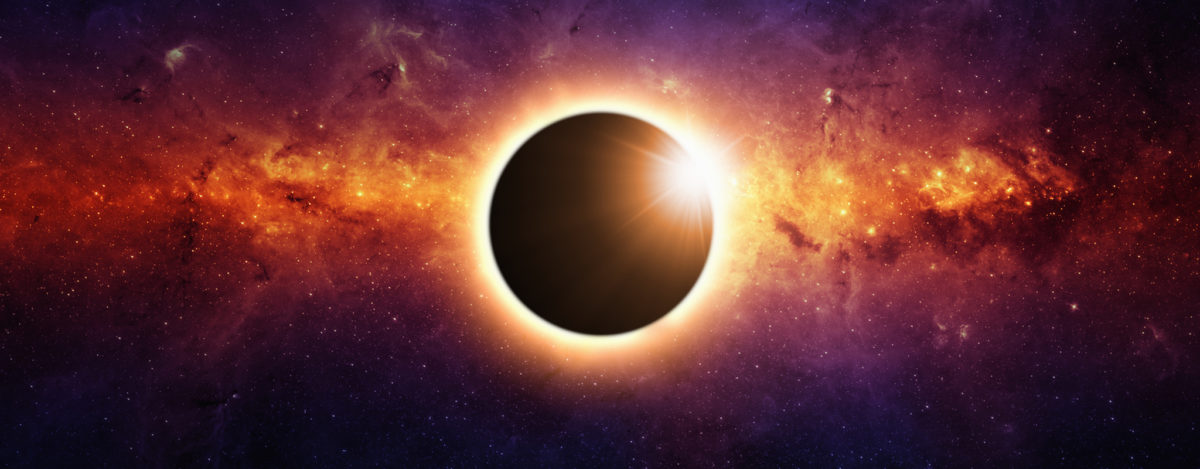The 2017 Total Eclipse Diabetic Survival Handbook
When our sun plays celestial peekaboo on Monday, August 21, there will be dangers, and as unusually vulnerable people, we—people with type 1 diabetes (T1Ds) must look out for one another. I can hear the Internet asking, “Wait, what dangers?” Good question, Internet. We’re here to tell you.
This is the 2017 Total Eclipse Diabetic Survival Handbook™, or TEDSCH. In the following paragraphs you will find all the information you need to survive (even thrive) during the eclipse.
Hello. Welcome to TEDSCH. On behalf of all astrologers and amateur astronomers, we hope that you survive to see August 22. To increase the likelihood of this happy outcome, please make sure that all of your friends, family and colleagues with diabetes have a copy of TEDSCH before Monday morning. We have five very important rules. They are as follows:
- Stay calm. When the moon clicks over the sun like a lens cap and plunges your world into gloom, remember: it is not forever! Probably. It is only for a few minutes. We think. Refrain from looting stores, schools and houses, or you will feel very foolish afterwards in the broad, mild daylight. Furthermore, running around looting would be strenuous (carrying TVs, shaking protective dogs off your pant legs, sprinting away from cops, etc.), and would increase the likelihood of a hypoglycemic event. Which brings us to our next item.
- Carry glucose with you at all times, and keep it on your person. The moon will rob us of all sight and sense, and you don’t want to be groping around for a backpack full of skittles in the dark. TEDSCH experts recommend carrying gummy bears in your breast pocket, prunes under your hat, and bananas in your waistband for optimal sugar-accessibility. While you are making these preparations, keep Number Three in mind:
- Don’t look directly at the sun. In the moments building up to the total eclipse, refrain from staring at the exposed sliver of sun without adequate eye protection. Ignoring this rule will allow the sun to burn its likeness directly into your cornea, which, in our expert opinion, Yikes. Photokeratitis (http://www.medicinenet.com/script/main/art.asp?articlekey=19394) will prevent you from reading the numbers on your blood glucose meter, and without this information you will be in trouble. If you have successfully avoided scalding your eyeballs, heed Number Four:
- Don’t listen to your uncle, you know, the one who subsists on uncooked ramen and celery and makes YouTube documentaries about lizard people building Stonehenge; don’t listen to him, because he will tell you that the eclipse means that a secret planet called Nibiru, aka Planet X, will soon collide with earth, soon as in September; and no matter how many times you hear Carl Sagan’s cool rational voice in your head telling you that this notion is poppycock, no matter how many times you reread TEDSCH for reassurance, when the moon wiggles over the sun and stuff starts to get weird (https://eclipse2017.nasa.gov/exploring-shadow-bands), your uncle will start to make sense, and you will get extremely nervous. Getting nervous can cause your blood glucose levels (BGLs) to rise or drop dramatically, which is precisely the sort of catastrophe TEDSCH wants you to avoid. Our experts have determined that Nibiru does not exist, that Neolithic humans built Stonehenge and that your uncle should not be invited to the next family event.
- Keep an eye out for Eclipse Bears. As their name suggests, these reclusive beasts (Ursus obscuratio) only come out to hunt during total solar eclipses, which only occur in a given area about once every 500 years (https://www.space.com/25644-total-solar-eclipses-frequency-explained.html). As you can imagine, these bears are very hungry when they emerge. Make sure your BGLs are in their target range. Do not become hyperglycemic. These famished bears would like nothing more than a sweet snack during the few minutes every half-millennium they roam the earth. Be smart!
Thank you for reading TEDSCH. Now do it again. Our experts recommend reading this document between three and five times to ensure adequate comprehension. If you have any questions, please let us know. Do not ask NASA. We emailed them to ask about the hibernation habits of Eclipse Bears, and they did not respond.
Now go enjoy this once-in-a-lifetime celestial event, and please remember our five rules. Don’t listen to NASA or your uncle. Good luck!
 Want to read more humorous pieces? Sign up for our Read This newsletter.
Want to read more humorous pieces? Sign up for our Read This newsletter.





